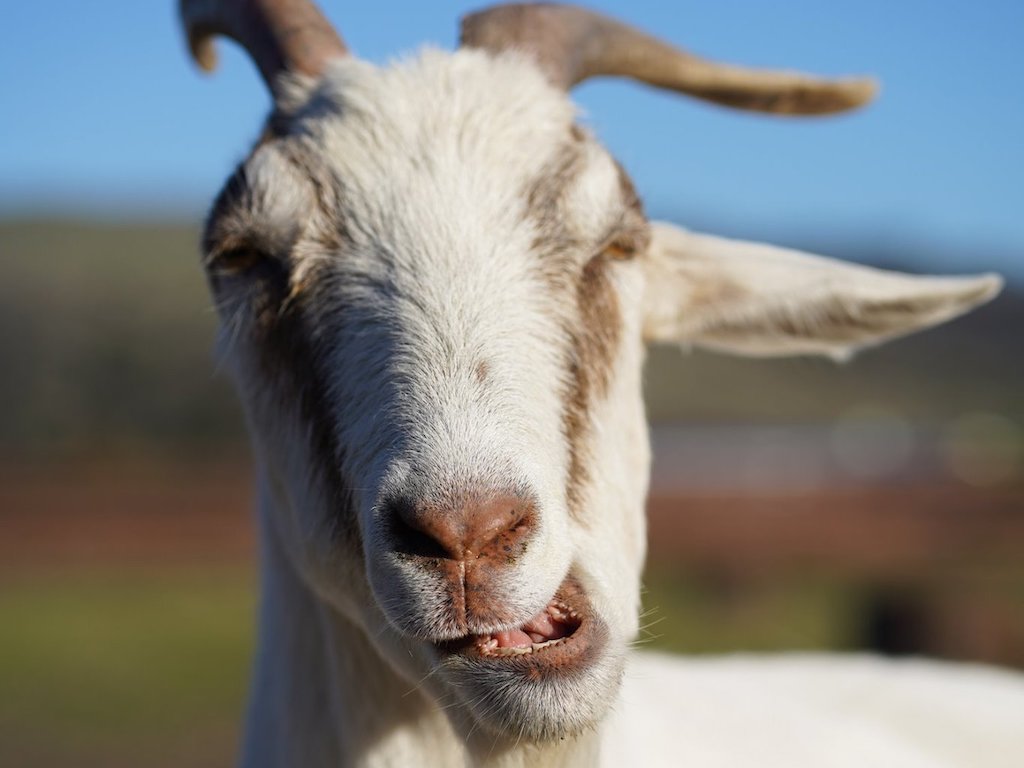4 Mins Read
Yes, there’s an animal sanctuary introducing goats to your next video conference. But for good reason. California-based Sweet Farm is connecting you to their rescued llamas and goats at the sanctuary to spread the message about the harms of factory farming, to both animals and the environment. More than that, the non-profit is connecting their animal rehabilitation efforts to veganic agriculture, in addition to their education and technology branches, all with the aim of amplifying the positive impact they’re making on the food system, animals and the planet.
Located in Half Moon Bay, Sweet Farm is the world’s first animal sanctuary laser focused on tackling the impacts of factory farming, from its role in fuelling climate change and deforestation, to the cruel conditions animals face and how our food system inefficiencies are harming human health too.
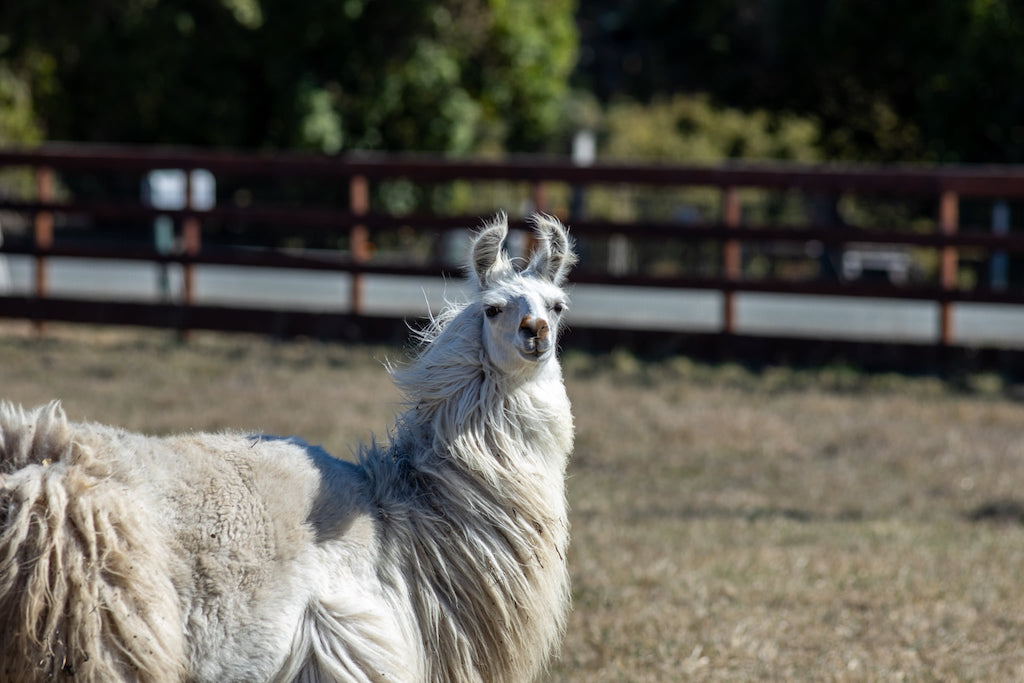
But what does it have to do with bringing goats into your video meeting? Well, amid the pandemic, which took in-person tours and corporate events off the table for the non-profit, Sweet Farm decided to try something new to keep their donation-dependent operations afloat.
In March 2020, co-founders Anna Sweet and Nate Salpeter set up with Goat-2-Meeting, offering individuals, friends, teams and large corporations alike the opportunity to meet their friendly farm animals online. One of their board members had floated the initial seed of the idea to Sweet and Salpeter, and they built the offering around it.
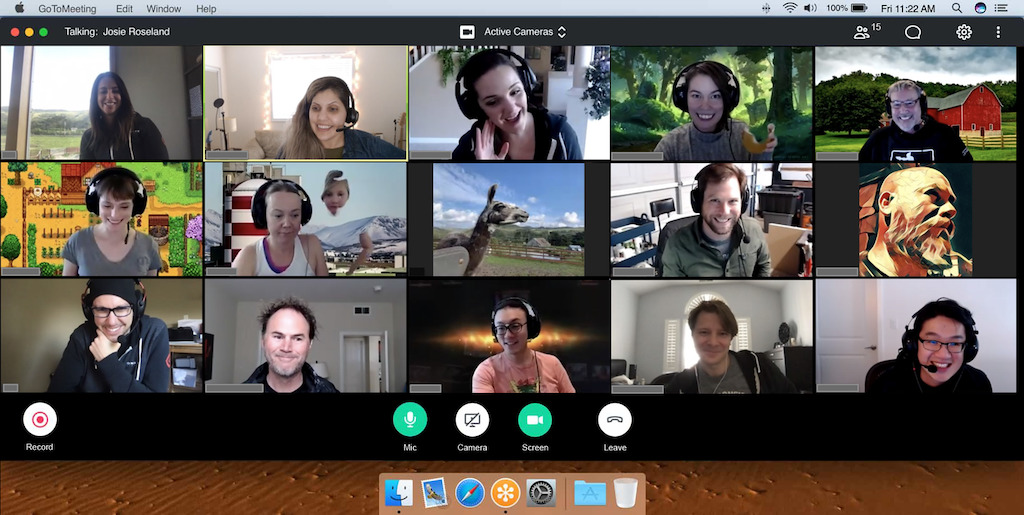
While the virtual meet-and-greet with Bruno the goat or Dolly the llama is bound to be entertaining, it’s also meant to be educational too, with Sweet Farm taking participants through all the reasons why we need to shift to a better food system and get rid of factory farming for good.
Since the program launched, Salpeter tells Green Queen Media that more than 8,000 live Goat-2-Meetings have been held, engaging over 275,000 people in the campaign and raising around US$1 million for not only Sweet Farm, but other animal sanctuaries who are in need of help amid the coronavirus lockdowns to continue the work they do, such as Catskill Sanctuary and Charlie’s Acres.
Unsurprisingly, Goat-2-Meeting has now made headlines across the U.S., but Salpeter is keen on emphasising that Sweet Farm is involved with a “wide range of things,” and that the popular program is “just one of them, of course.”
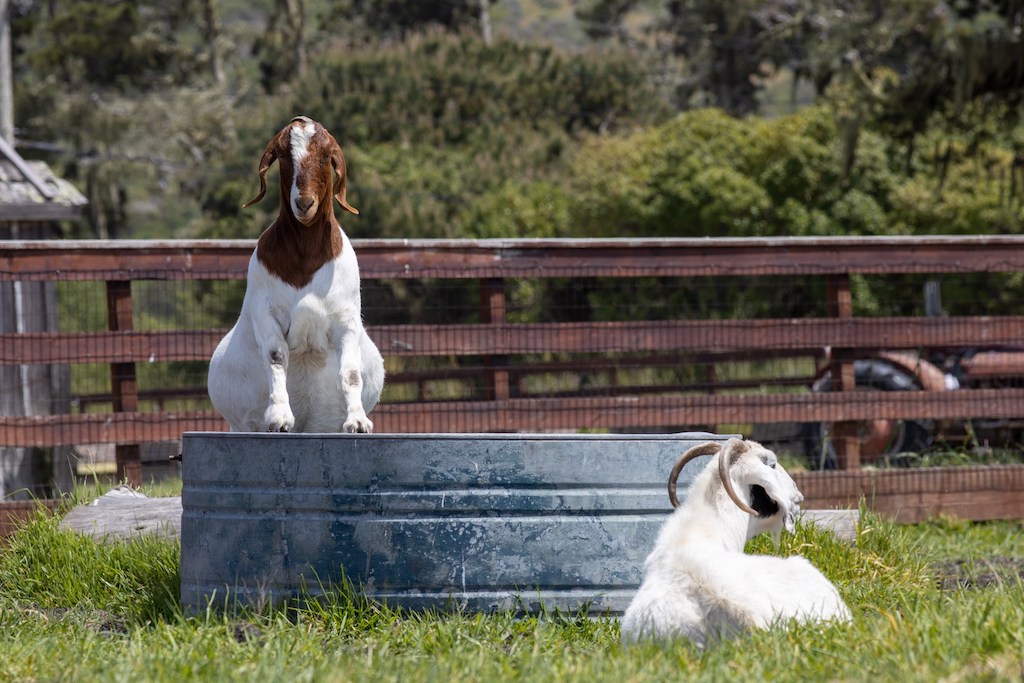
Aside from giving rescued animals a new home and educating people via offline and now online tours as well, Sweet Farm is a proponent of veganic agriculture, running initiatives to inspire people to be compassionate in what they choose to put on their plates – which in turn, is better for the planet, as a plethora of scientific studies have shown.
“We celebrate biodiversity, growing heirloom, open-pollinated seeds using veganic, sustainable methods,” the sanctuary explains. To foster sustainable eating habits in communities, Sweet Farm also dishes out delicious plant-based recipes and other vegan tips to get more people to transition into a climate-friendly, animal-free lifestyle.
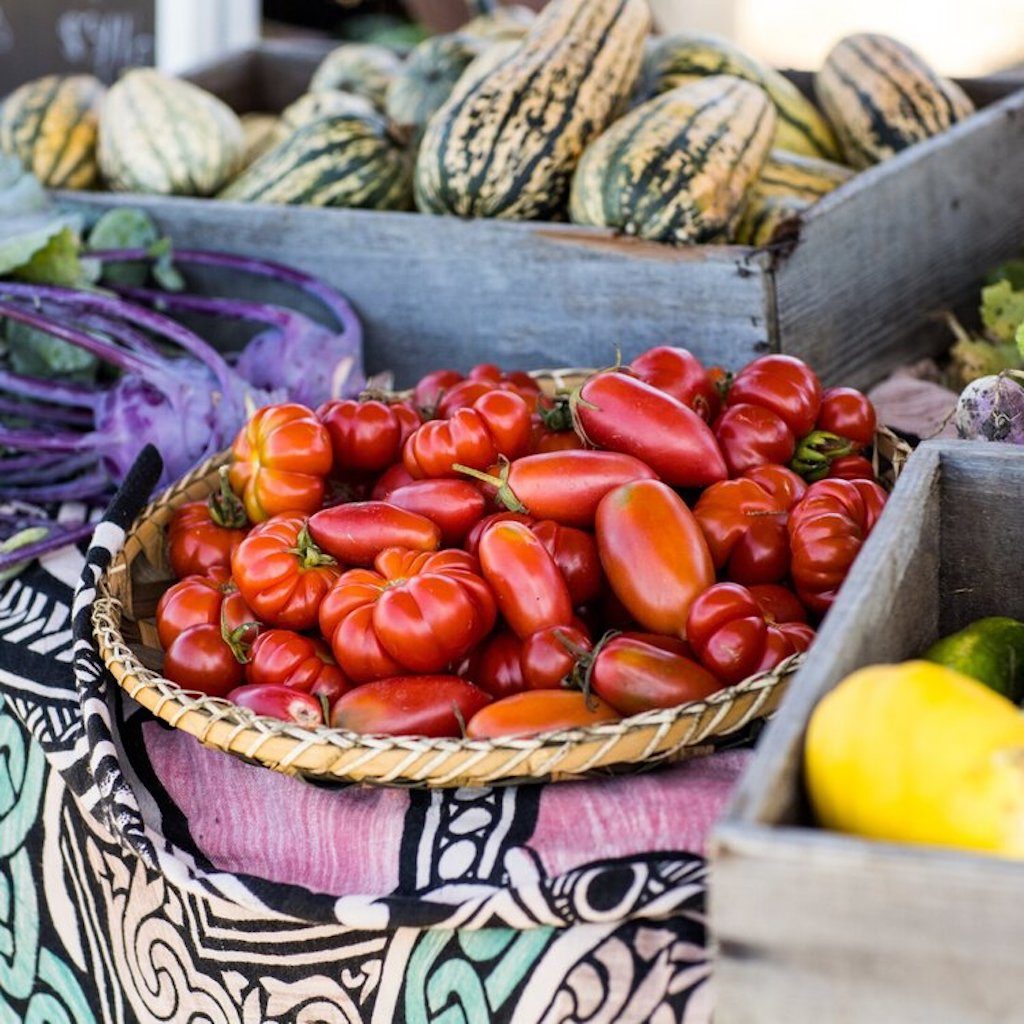
Another part is collaborating with startups and tech companies developing solutions to factory farming, such as innovative alternative protein firms who are coming up with delicious plant-based and cell-based meats that take animal cruelty and the environmental impact of livestock farming out of the equation. Sweet Farm offers support, access to funding, networking and even mentorship and product showcases to help these disruptive companies.
“Our food web is incredibly complicated and it’s impossible to move forward without first acknowledging how these pieces are connected,” says Sweet Farm.
“By linking veganic agriculture, farm-animal rescue, education, and the technology that is revolutionising food and agriculture production, [we’re] redefining what it means to be a sanctuary.”
All images courtesy of Sweet Farm.

